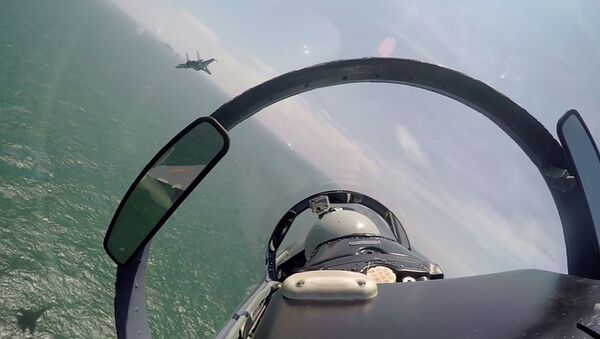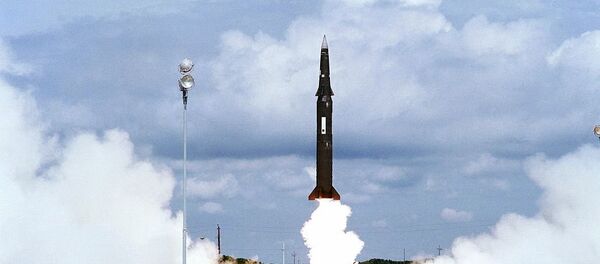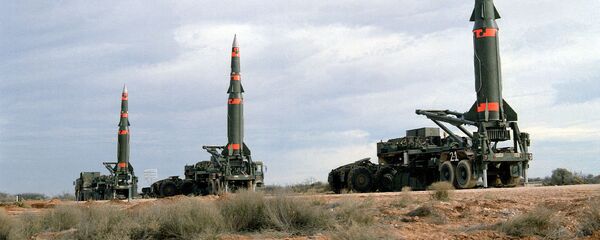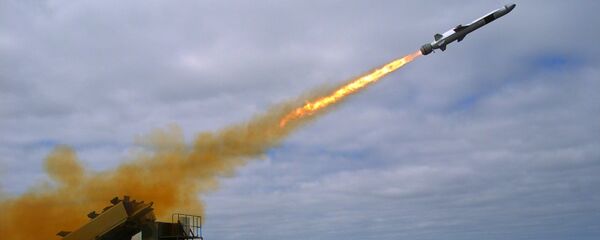The Pentagon's new ground-launched cruise missile with a potential range of about 1,000 kilometres, which was previously banned under the 1987 Intermediate-Range Nuclear Forces (INF) Treaty, might be ready for deployment within 18 months after being tested in August 2019, US defence officials told reporters on 13 March.
It will take about 5 years to deploy yet another INF-banned weapon — a ballistic missile with a range of about 3,000 to 4,000 kilometres — that is likely to be flight-tested in November, according to Pentagon officials.
Citing the US Department of Defence (DoD), the Associated Press pointed out on Wednesday that US allies in Europe and Asia "have not yet been consulted about deploying either new missile on their territory", adding that the new intermediate-range ballistic missile (IRBM) could be deployed on Guam to target both China and Russia.
'US Has No Real Intent to Renegotiate INF Treaty'
The treaty has been nominally suspended by the US until August 2019, according to the ultimatum given by Secretary of State Mike Pompeo to Russia on 1 February. However, judging from the Pentagon's activities it is clear that Washington "obviously has no real or serious intent to renegotiate a new INF Treaty with either Russia or other states", the security analyst emphasised.
"That the Pentagon just a month after officially withdrawing from the INF Treaty is already set by its own admission to begin testing a land-based cruise missile and expects to deploy it within just 18 months, and already has plans for a land-based ballistic missile that it specifically wants to deploy in Guam, is sending a clear signal not only to Moscow but to the whole world that the US has long been planning to pull out of the INF treaty for the specific purpose of producing these weapons for military and geopolitical purposes that have little to nothing to do with Russia or the pretext of supposed 'Russian violations'," Sleboda told Sputnik.
'It's by No Means Certain that EU States Will Want US INF-Banned IRBMs'
According to the security analyst, "the US is escalating tensions with both Russia and China because it sees them as a clear geopolitical threat to its foreign and military policy pursuit of global hegemony".
"US military brass, strategic planners and geopolitical experts believe that conflict with China in the South China Sea is inevitable in the US attempt to contain and counter China's rise as a great power in the Pacific. It is developing these missiles specifically for use in that theatre", Sleboda suggested.
He foresees that Eastern European states such as Poland and Romania "are the most likely to be interested" to host INF-banned American IRBMs.
"This could lead to further political tensions in the EU with Western European states who seek to prevent such a return to spiralling Cold War-redux tensions that the INF treaty was originally implemented to clear from Europe", Sleboda said.
European states, most notably Germany, have repeatedly called upon Washington to preserve the 1987 INF Treaty. Their concerns did not prevent them from following the White House's suit. The EU pointed the finger of blame at Russia for alleged "violation" of the agreement and snubbed the Russian Ministry of Defence's presentation of the 9M729 (NATO codename: SSC-8) missile system on 23 January 2019 along with US and NATO officials. According to Washington, the aforementioned Russian rocket violated the INF accords.
Unintended Consequences of Trump's INF Pull-Out
The by-products of Washington's INF pull-out will be not only an arms race escalation but also Russo-Chinese defence rapprochement: "It is pushing Russia and China geopolitically closer and closer together out of a shared defensive security need", the security analyst said.
However, "short of giving up its pursuit of global military hegemony and full spectrum dominance or trying to geopolitically split the two countries, as was done during the middle of the Cold War, by making compromises and concessions and moving closer to one of them, there is little the US can do", Sleboda highlighted.
As "the US does not seem willing to consider either of these two options at present, we are likely to see escalating Great Power tensions and a rejuvenated arms race continue for the foreseeable future", the international affairs and security analyst predicted.
The views and opinions expressed by the speaker and the contributor do not necessarily reflect those of Sputnik.





